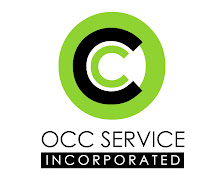Santa heard you last year. You want a tablet. Let me be your
Grinch for a few paragraphs.
I’m not going to sit here and tell you that tablets aren't great. A year ago, I left my iPad at a friend’s house overnight. Feeling
completely out of sorts, I had to turn to the methadone of Windows Solitaire. I use my iPad every day, possibly every hour.
What I do with it is the most trivial of human activities: Checking what my friends
are doing, browsing amazon for stuff I don’t need, and yes… especially
solitaire. Not to say I don’t get work email
on it, I do. But I reply using a computer like a grownup.
It’s
not that tablets are doomed to such unimportant applications. In fact, more and
more workplaces are adding tablets into their business process. A client of
ours is introducing MS’s new Surface to take patients signatures on legal
forms. Others use them as an interface for retail customers, reducing the sporadic
long lines that drove new business away. You aren't going to do any of these things
with yours, but you could, and that is comfort enough.
The
real reason I am being a Grinch today, is because regardless how you will use
your tablet, you will certainly bring it to work. Assuming that you are a client,
now we have some skin in the game. Small business networks still default to an
IP range accepting 254 network devices. That would still be more than enough if
the following devices hadn't started using some of those addresses: Office
phones, cell phones, air conditioners, coffee makers (seriously), and tablets.
That isn't to mention their computers, laptops, servers, and networking
equipment. We have a client with 55 employees that is fresh out of IP
addresses. The solution is simple, leave your tablets at home….. No not really.
While
nothing I've said so far is untrue, my conclusion is ridiculous. To limit the
use of newer devices because of the short term engineering problems they pose
or doubts about their productivity would be completely wrongheaded. It is impossible to tell what innovations are
going to be useful. Having employees
bring their own devices into work presents some experimental opportunities at
low-to-no cost of the business. Every person who has ever worked for OCC started
in this field because of how amazed they were with the power of these very
innovations. It is power that manifests after a heck of a lot of playing around. …….. and his screen grew three sizes bigger
that day.
Ted Hughes
Managing Director
OCC Service Incorpoarted
